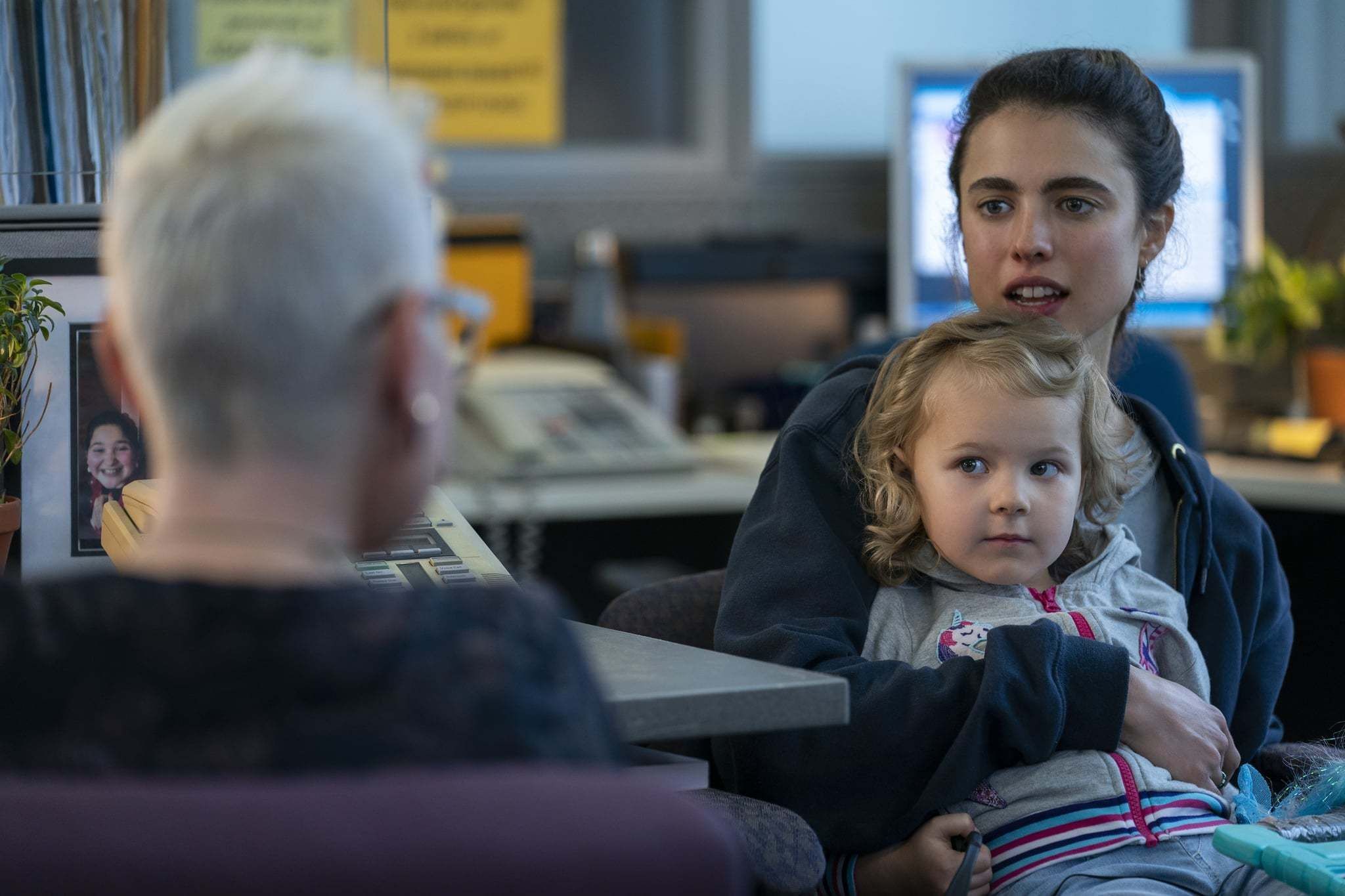
We are honored that someone that has worked with our program reached out to share their perspective on the new show Maid on Netflix. Many agencies have highlighted it recently, including us. Jane Doe asked us to share how it impacted her as a survivor. In the interest of confidentiality, we will not be sharing the author’s name. The following is an episode-by-episode account, so there are some spoilers.
Last month I watched an episode of a popular show everyone has been talking about. I watched “Maid.” I watched one episode and became so triggered as I felt so connected to the story. I found myself bawling throughout the show. I wasn’t planning on watching it again, but my partner told me it got better and to try to watch it again.
Well…. This weekend I ended up binge watching the rest of the episodes. As a survivor of domestic violence myself, as well as being connected to the storyline in different aspects I found myself relating and understanding what Alex was going through. I found the producer to portray meaningful lessons learned that people who have not experienced domestic violence cannot understand.
Throughout the whole story line I, at times I felt triggered, angry, heartbroken, and yet so proud. Her story is composed of domestic violence, poverty, selfless love, and survival. It wasn’t just domestic violence. It was so much more. Verbal, emotional, and mental abuse.
The show was able to explain in such exceptional detail on the many misunderstandings, assumptions, and judgments made by many who have not experienced this. Statistics tell us that 1 in 4 women are victims of Domestic Violence. About 1 in 4 women and nearly 1 in 10 men have experienced contact sexual violence, physical violence, and/or stalking by an intimate partner (CDC, Intimate Partner Violence).
I look back and realize how much I relate to this show. I too am a survivor of domestic abuse. Being with someone who feels they must be in control at all times, have the power, the say I’ve learned is a red flag and you must leave. It may be hard to leave. You will find yourself going back in hopes that things will change. In hopes to keep your family together, especially when children are involved. You’ll be made to feel that you’re in the wrong and the one to blame. Abusers don’t take responsibility for their actions. They stay stuck in denial or have no empathy for what they’ve done. Below are lessons I took that I want to share in hopes to help others.
1. The Frist Episode. The one that made me stop, where I just stood still in tears. The one where right away Alex leaves with her child to leave Sean, her abusive partner. She finds herself at social services trying to get assistance. While the social worker inquiries about Alex's situation, the social worker asks, “Do you want to file a police report?” Alex replies, “And say what…that he didn’t hit me?” Domestic violence is portrayed only as physical abuse, but it’s more than that. It can be sexual, verbal, emotional, and mental abuse. Yes, we learn there are limits to what police can do, but it’s so important to document and report the abuse. In the moment, you may have so many questions or thoughts on why you shouldn’t report. “It wasn’t that bad.” “It could have been worse.” “It was one time.” Even when an abuser is arrested, they can easily post bail and sometimes get away with it. Makes it so difficult to trust the system but in the end report.
2. Following Alex escape, she finds herself relying on seven different forms of government assistance just to avoid being homeless. Still with all that assistance she struggles to make ends meet. There is an assumption that because someone is poor they must have put themselves there due an addiction, or be on drugs, or just be uneducated. When Alex begins her first cleaning job, the wealthy home-owner, Regina, asks Alex if she can read. We learn even though one is on assistance we shouldn’t judge when we don’t know the situation. We also learn when Alex is trying to apply for a subsidized housing grant she is told she needs proof of a paycheck first. When she explains that she needs day-care in order to interview for jobs, she is told that there are subsidized grants for day-care as well, but again, she must show proof of a paycheck, first. In bewilderment she says, “I need a job to prove that I need day-care in order to get a job?” Later when she attempts to find an apartment, she is repeatedly turned away from tenants who refuse to accept TEBRA vouchers. She also couldn’t even work over 30 hours a week without losing assistance.
3. Most women who are victims of DV struggle to leave their abuser, and those who do leave often find their way back multiple times before leaving for good. “It takes most women seven tries before they finally leave,” Denise, the advocate at the DV shelter stated to Alex. I, too understand this feeling. You finally get the courage to leave, after struggling for so long to acknowledge that it’s time to leave. They find ways to convince you to come back. Once they realize they have lost you they feel they have lost their control, their power. They know you so well and they wait until you’re vulnerable and they pour their love and attention again… It’s normal for a victim to begin to miss their intimate partner and to focus on “the good times,“ believing that their abuser is really a good person on the inside. This is what is called love bombing. Abusers also use manipulative tactics such as gas lighting to make a victim believe THEY are the problem.
4. Emotional abuse IS domestic violence. Throughout the series we see Alex being emotionally, financially, verbally, and mentally abused, and yet, because she wasn’t physically hit, she repeatedly states “I’m not being abused.” It’s important to know that even if emotional violence doesn’t seem to be abusing it usually escalates to be physical. Another victim at the shelter, Danielle told Alex, “Before they bite, they bark.” “Before they hit you, they hit near you.”
5. Abusers often turn the couple’s family and friends against the true victim of abuse, and instead portray themselves as a “victim.” Friends and family may be in denial that someone they love and care for could be abusing their partner. Doing this only ends in disaster and can cause more victims to become hurt. We see this play out when Sean’s friend and Alex’s parents explain how Sean is going through a difficult time and needs some empathy. You see this happen numerous times. It makes you question if maybe you should stay, or go back. It is important to remember we can’t help someone who doesn’t want help. It’s also not someone’s fault for someone else’s choices. Sean made those choices. Alex’s responsibility was herself and Maddie, not Sean.
6. In later episodes, Sean begins to show empathy when Alex is in a vulnerable state with her mother. He uses her to wheel her back into living with her. Once he gets her back where he wants her, Alex begins to dissociate. She finally shuts down and takes in the abuse. Sean cuts her off financially, gets rid of her vehicle, and decides to not pay her phone minutes, so she’s without a phone. She becomes isolated. Not allowed to talk or see anyone. A victim may become numb and do nothing as a way to survive.
7. Therapy is essential in understanding you’re not alone. It allows you to speak up about your abuse. Share your stories. It can help a survivor get their voice back. We see Alex at the end being able to verbalize and recognize that she was abused and that she sustained PTSD due to it. She was able to be comfortable sharing and helping others in group therapy.
These women are all around you, and you may not even know it. Same with men. They may be a coworker, a friend, or someone who sits next to you in church. Remembering this, observing the people you love and know may help prevent further harm to them. They need our support and to show empathy. Learning the signs will be beneficial in the end.
Thank you, Jane, for taking the time to send us your review.

